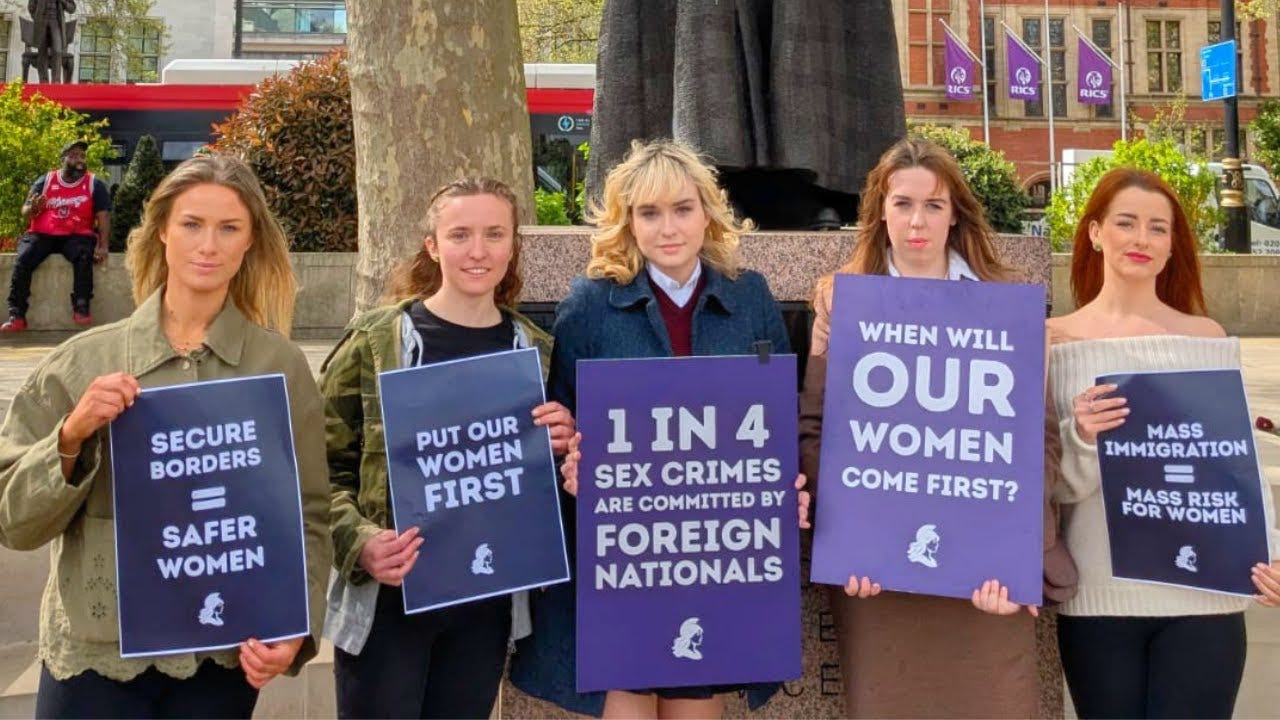Safety Versus Inclusion
Women, social taboos, and pattern recognition

When the “TERF wars” began in Britain, it triggered a fight within feminism. It’s still raging: on one hand stand women who believed the feminist cause best advanced by inclusion, and believed this should even be extended to men who identify as women. On the other stand women who believed the feminist cause best advanced by ensuring women’s safety in sex-segregated spaces, even if this places some limits on inclusion. “TERF” captures this: the “TE” stands for “trans exclusionary”. The fact that, for some, “exclusionary” is bad by definition points to a core meta-debate concerning the normative left-liberal frame, which grants considerable institutional power to “diversity, equity, and inclusion” and imposes constraints on when, or even whether, it’s acceptable to set limits on this “inclusion”.
Within that frame, the null hypothesis is that anything which divides an in-group formally from an out-group is arbitrary, cruel, and probably bigoted. But, importantly, there is a loophole: in-groups may legitimately be divided from out-groups where this is justified on the basis of “safety”. As Covid illustrated, astonishingly authoritarian policies may legitimately be imposed on this basis, and then widely enforced - especially by women.
Inclusion and safety are both strongly female-coded values. The social scientist Joyce Benenson, who studies sex differences in approaches to conflict, argues in Warriors and Worriers that this reflects adaptive sex differences, grounded in behaviours that have historically enabled women to stay alive. So we might understand the TERF wars as a struggle, across areas of public culture in which women predominate, over which of these two historically important and adaptive female traits to prioritise in law, policy, and cultural norms. But my hunch is that when push comes to shove, safety will always trump inclusion. And if the TERF wars were the first shot across the bows of inclusion, immigration is shaping up to be the second - especially, large-scale illegal immigration.
This is now typified in the public mind by the Channel boat crossings, and the growing clusters of mostly young male asylum seekers who arrive by this means. They originate in countries such as Afghanistan, Syria, Iran, and Eritrea; to date no British government has made serious efforts to tackle the legal and constitutional obstacles that are the real “underlying causes” of the issue. Labour’s efforts remain focused on upstream drivers and structural factors, and to date have made no appreciable dent in the flows.
Stereotypically, those British people who object to this situation are beneath contempt: the tattooed, skin-headed “far right thugs” of progressive demonology, epitomised by EDL founder and internet personality “Tommy Robinson”, real name Stephen Yaxley-Lennon. But the protests that have erupted outside migrant hotels in recent weeks have suggested a sea-change: no longer just the province of angry young men, these are increasingly led by women.
In one clip, four middle-aged women hold an improvised banner, painted on a cardboard box, that says “I’m Not Far Right, I’m Worried About My Kids”. More recent protests outside the Britannia hotel in London, also now housing asylum seekers, have seen large groups of women protesters, blocking the road while singing “Sweet Caroline”. There have been a few scuffles, and the usual far-left counter-protesters. But it is no longer tenable to claim that it’s just a few “thugs”. A growing proportion are clearly women, and are now visibly more worried about their own and their children’s safety than they are about being, or seeming, “inclusive”.
Keep reading with a 7-day free trial
Subscribe to Mary Harrington to keep reading this post and get 7 days of free access to the full post archives.

